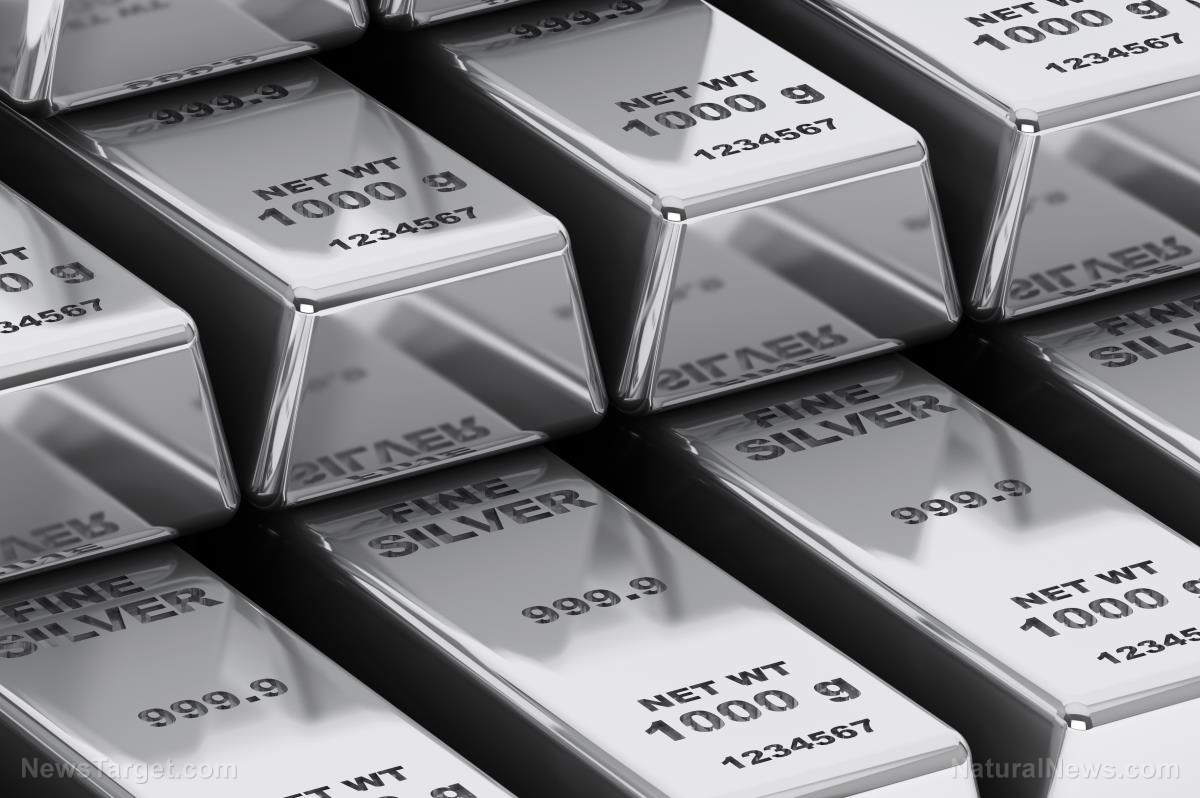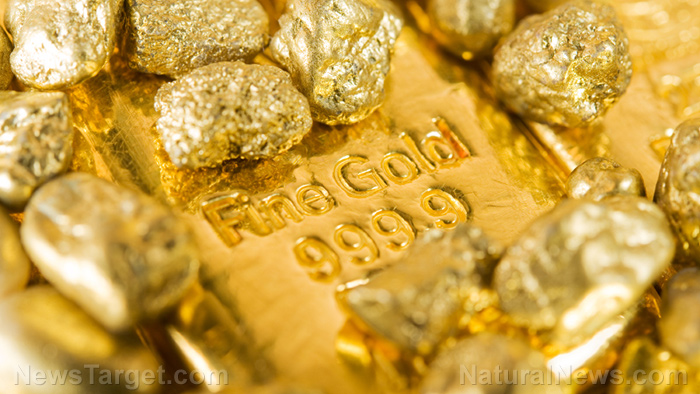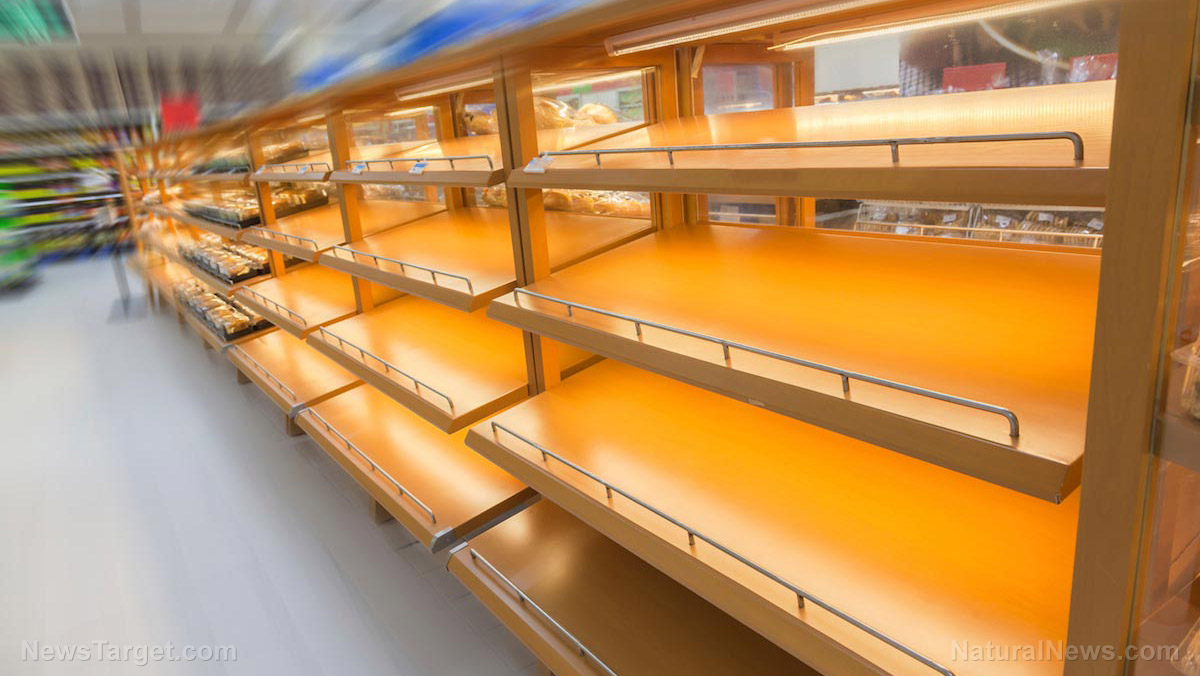South Korean banks halt silver bar sales amid global and domestic uncertainty
02/17/2025 / By Cassie B.

- South Korean banks halt silver bar sales due to surging demand, following a similar suspension of gold bar sales earlier this year.
- Rising global economic uncertainties and domestic political instability are driving investors toward safe-haven assets like gold and silver.
- Major banks, including KB Kookmin and Shinhan, are affected, with supply chains overwhelmed by the “balloon effect” from gold shortages.
- Global gold prices hit record highs, with analysts predicting prices could surpass $3,000 per ounce amid inflation and geopolitical tensions.
- Experts warn the trend of investing in precious metals will likely continue as long as global and domestic uncertainties persist.
In a move that underscores the growing unease among investors, South Korean banks have halted the sale of silver bars, following a similar suspension of gold bar sales earlier this year.
The decision, driven by surging demand for precious metals, reflects a broader trend of investors seeking safe-haven assets amid global economic uncertainties and domestic political instability. With gold prices hitting record highs and silver now following suit, the supply of these metals has been unable to keep pace with demand, leaving banks scrambling to manage dwindling inventories.
The suspension of silver bar sales, announced on February 14 by the Korea Gold Exchange, affects major banks such as KB Kookmin, Shinhan, Woori, and NH NongHyup. This comes just days after the Korea Minting and Security Printing Corp. (KOMSCO) halted its supply of gold bars to banks, citing an inability to secure raw materials due to skyrocketing prices.
Gold hoarding sparks silver rush
The decision to halt silver bar sales is a direct consequence of the gold market’s turmoil. As gold prices surged to record highs, driven by global uncertainties such as U.S. President Donald Trump’s tariff threats and inflationary pressures, investors turned to silver as an alternative. “As gold prices recently hit record highs, a shortage of gold bars emerged. Consequently, investors turned to silver bars as an alternative, leading to a surge in demand for silver bars,” explained an official at one of South Korea’s major banks.
This shift created a “balloon effect,” where the suspension of gold bar sales inflated demand for silver, overwhelming the supply chain. The Korea Gold Exchange, which had already stopped selling smaller gold bars (10g and 100g) in October, now faces a similar challenge with silver.
Global and domestic pressures mount
The surge in demand for precious metals is not unique to South Korea. Globally, central banks and individual investors alike are turning to gold and silver as hedges against inflation, geopolitical tensions, and economic instability. According to Reuters, the spot price of gold reached $2,911.30 per troy ounce on February 10, marking its seventh yearly high in 2024. Analysts predict that gold could soon surpass $3,000 per ounce, with some even forecasting $4,000 by next year.
Domestically, South Korea is grappling with its own political uncertainties, further fueling the rush for safe-haven assets. The combination of global trade tensions and local instability has created a “perfect storm” for precious metals, as one analyst described it.
What’s next for investors?
With both gold and silver bars now in short supply, investors are left with limited options. Some banks have resorted to depleting their existing inventories or sourcing from alternative suppliers, but these measures are temporary. “While selling 1kg bars is not entirely impossible, the supply is unstable, so we have decided to suspend sales altogether,” a commercial bank official noted.
Experts suggest that the trend of investing in precious metals is likely to continue as long as global uncertainties persist. “Gold and silver are telling us that all is not well with the world,” said Tom Stevenson of Fidelity International. “Investors are worried, and history shows that it is unwise to ignore the signals that gold sends at times of stress.”
Sources for this article include:
Submit a correction >>
Tagged Under:
banks, bubble, chaos, collapse, currency crash, currency reset, economic riot, finance riot, gold, gold bars, inflation, market crash, money supply, panic, Precious Metals, rationing, risk, scarcity, shortage, silver, silver bars, South Korea, supply chain
This article may contain statements that reflect the opinion of the author
RECENT NEWS & ARTICLES
COPYRIGHT © 2022 Scarcity.news
All content posted on this site is protected under Free Speech. Scarcity.news is not responsible for content written by contributing authors. The information on this site is provided for educational and entertainment purposes only. It is not intended as a substitute for professional advice of any kind. Scarcity.news assumes no responsibility for the use or misuse of this material. All trademarks, registered trademarks and service marks mentioned on this site are the property of their respective owners.



















